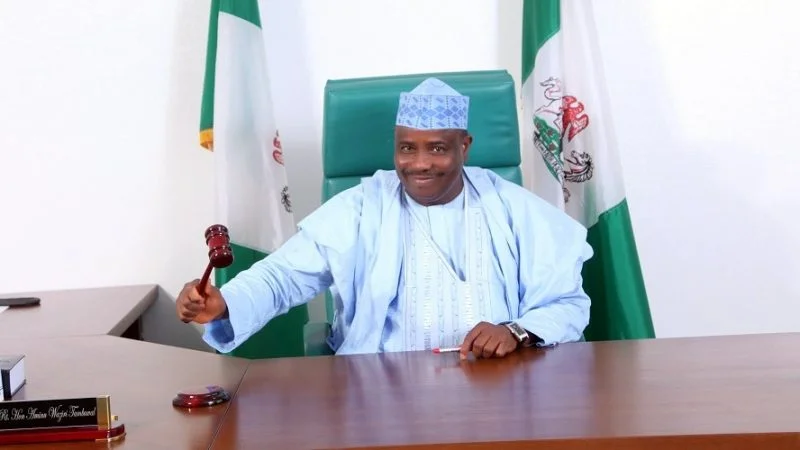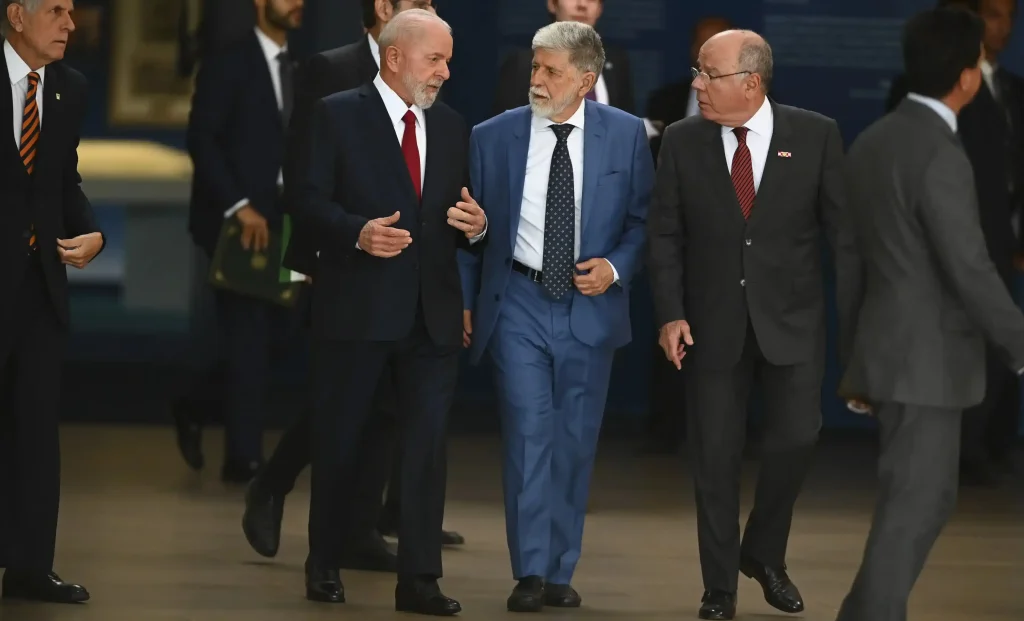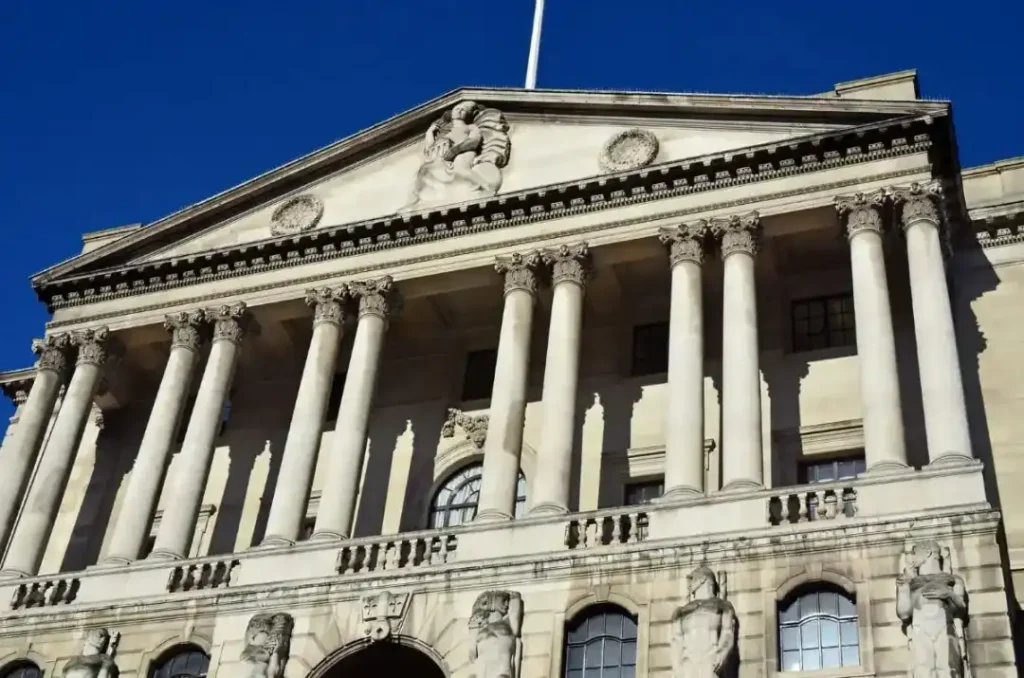Had Sokoto State Governor Aminu Tambuwal not withdrawn from the presidential race at the last moment and thrown his weight behind Atiku Abubakar, the latter’s path to victory might have been far more challenging.
Atiku clinched the People’s Democratic Party (PDP) presidential ticket for the second time in four years at the convention held at the MKO Abiola National Stadium. With 371 votes, he outpaced his nearest rival, Nyesom Wike, Governor of Rivers State, who secured 237 votes.
Among the 13 aspirants vying for the ticket, votes were primarily concentrated between Atiku, Wike, former Senate President Bukola Saraki, Bauchi State Governor Bala Mohammed, Akwa Ibom State Governor Udom Emmanuel, and Anyim Pius Anyim, another former Senate President.
Anyim garnered 14 votes, Udom 38, and Bala Mohammed 20, while Saraki secured 70. Several other candidates, including ex-Ekiti Governor Ayodele Fayose and business tycoon Dele Momodu, struggled to make a mark, with some not receiving a single vote.
The contest witnessed 12 voided ballots, while 767 delegates were accredited to vote. Sources suggest Tambuwal’s withdrawal and endorsement of Atiku provided a decisive boost, with many delegates loyal to Tambuwal redirecting their support towards the former Vice President.
Tambuwal, the sole aspirant from the North West, a region with the highest delegate count at 182, played a pivotal role. His exit, alongside Mohammed Hayatu-Deen’s earlier withdrawal under pressure from Northern elders, cleared the way for Atiku’s triumph over other prominent candidates from the region.
Tambuwal’s endorsement was particularly striking, as he withdrew moments before voting commenced, urging his supporters to align with Atiku. “Sacrifices are needed in the interest of both our party and the nation,” he stated, emphasizing the gravity of his decision.
Hayatu-Deen’s withdrawal, although less ceremonious, was also impactful. Coming from Borno State, he decried the monetization of the primary, expressing frustration with the transactional nature of the process.
In appreciation of Tambuwal’s gesture, Atiku’s ally, Senator Dino Melaye, lifted the governor in jubilation, underscoring the significance of the move. Despite his earlier exclusion from a regional consensus agreement, Tambuwal managed to negotiate a deal with Atiku that could potentially secure him the Senate presidency in the future.
Voting patterns across states remained largely opaque as the electoral committee intentionally avoided state-specific ballot boxes to shield delegates from undue scrutiny. Nevertheless, key contenders managed to secure votes from their respective home regions.
Fayose, however, attracted attention by lending his support to Wike despite receiving no votes himself. Southern delegates split their allegiance between Wike, Emmanuel, and Anyim, while Atiku tapped into Northern states lacking PDP governors to bolster his numbers.
In their reactions, several aspirants expressed both admiration and frustration over the outcome. Anyim lamented that voting seemed driven by personal loyalties rather than national interest, questioning whether the nation was truly advancing toward unity and progress.
Ohuabunwa echoed similar concerns, criticizing the lack of ideological scrutiny among the delegates. “Our democracy deserves better,” he remarked, reaffirming his resolve to continue advocating for a prosperous Nigeria.
Meanwhile, Saraki, in a tweet, thanked supporters for rallying behind his #RealSolutions campaign, calling for unity within the party to confront national challenges such as insecurity and economic hardship.
PDP lawmakers and party members, including Ndudi Elumelu, stressed the importance of unity as they pivot towards the 2023 general elections. Elumelu commended the aspirants for their sportsmanship, urging members to rally around Atiku to rescue the nation from what he described as the “ruinous” leadership of the All Progressives Congress (APC).
However, the Southern and Middle Belt Leaders Forum (SMBLF) harshly criticized Atiku’s emergence, branding it a betrayal of the South. The group accused Northern elites of manipulating the process to maintain dominance, ignoring the long-standing tradition of power rotation.
SMBLF reminded the nation that southern leaders and governors had previously called for the presidency to shift to the South in 2023. “The unity of the nation has been disregarded,” the statement read, calling on Southerners to reject Northern presidential candidates in the upcoming elections.
The forum also warned politicians from the South against accepting vice-presidential positions, arguing it would amount to subjugating their region to political slavery.
Ohanaeze Ndigbo, the apex Igbo socio-cultural organization, opted to withhold its stance until the APC concluded its primaries. Spokesman Alex Ogbonnia hinted that their response would hinge on the final lineup of candidates.
Earlier, Ohanaeze President General George Obiozor had warned the PDP that abandoning its zoning principle would have severe consequences. Obiozor reiterated the group’s stance, aligning with the SMBLF’s call for power to shift to the South.
The unfolding drama highlights the complex dynamics at play within Nigeria’s political landscape, as aspirants and regions vie for influence ahead of the 2023 elections.























